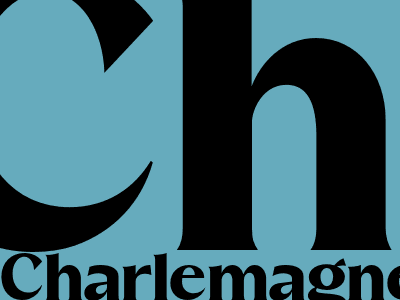Charlemagne: A Defining Figure in European History
Introduction
Charlemagne, also known as Charles the Great, was a remarkable figure who shaped the political, cultural, and religious landscape of Europe during the Middle Ages. His reign marked a period of great expansion, consolidation, and reform, transforming Western Europe into a cohesive and influential force on the global stage.
Early Life and Rise to Power
Charlemagne was born in 742 AD into the Carolingian dynasty, a family that had ruled the Frankish kingdom for generations. His early life was spent in the tumultuous world of Frankish politics, where rivalries and conflicts were commonplace. Upon the death of his father, Pepin the Short, in 768 AD, Charlemagne inherited the kingdom along with his younger brother, Carloman.
However, Carloman's untimely death in 771 AD left Charlemagne as the sole ruler of the Frankish kingdom. This event marked a turning point in his life, as he embarked on a series of military campaigns that would forever change the course of European history.
Military Conquests and Empire Building
Charlemagne's reign was characterized by a relentless pursuit of military conquest and territorial expansion. He led his armies to victory in numerous campaigns, subduing neighboring tribes and kingdoms and expanding the boundaries of the Frankish Empire to unprecedented levels.
Among his most notable conquests was the defeat of the Lombards in Italy, the conquest of Saxony, and the subjugation of the Avars in modern-day Hungary. By the end of his reign, Charlemagne had created a vast empire that stretched from the Atlantic Ocean to the Elbe River and from the Pyrenees to the North Sea.
Political Reforms and Centralization
Alongside his military conquests, Charlemagne also implemented a series of political reforms aimed at centralizing power and strengthening the administration of his empire. He established a system of royal officials known as counts and missi dominici to represent the king in different regions and ensure the smooth functioning of government.
Charlemagne also reformed the legal system, issuing a new set of laws known as the Capitularies. These laws aimed to standardize legal practices across the empire and promote justice and fairness.
Cultural and Religious Revival
Charlemagne's reign was not only a period of political and military achievements but also a time of cultural and religious revival. He was a patron of the arts and learning, encouraging the establishment of schools and monasteries throughout his empire.
Charlemagne also played a significant role in spreading Christianity throughout Europe. He supported missionary activities and promoted the conversion of pagan tribes to Christianity, contributing to the spread of Christianity and the establishment of the Holy Roman Empire.
Legacy and Impact
Charlemagne's reign had a profound and lasting impact on the course of European history. His military conquests and political reforms created a unified and powerful empire that laid the foundation for the development of modern Europe.
Charlemagne's patronage of the arts and learning helped to preserve and revive classical culture, contributing to the development of the Carolingian Renaissance. His efforts to spread Christianity also shaped the religious and cultural landscape of Europe for centuries to come.
Charlemagne's legacy as a great ruler and a defining figure in European history continues to inspire and resonate today. He is remembered as a visionary leader who transformed Europe into a vibrant and influential center of civilization.

Komentar